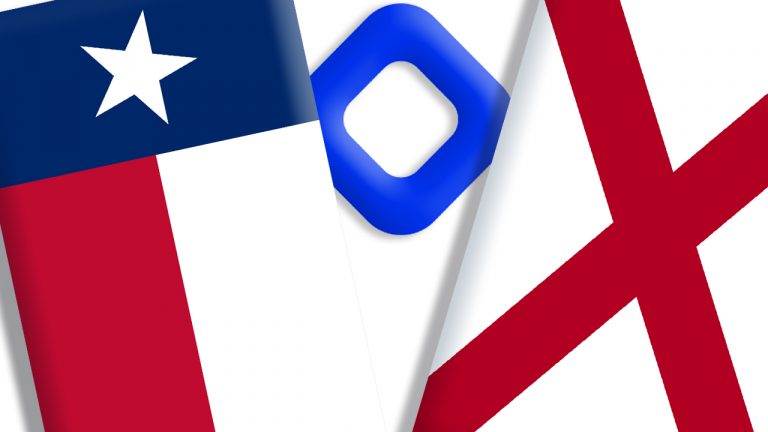
Fresh off the heels of Blockfi’s issues with the New Jersey Bureau of Securities, the company is now having problems in the state of Alabama. The director of the Alabama Securities Commission (ASC), Joseph Borg, explained on July 21 that he issued a show cause to the firm. Borg wants Blockfi to explain why the ASC should not copy New Jersey’s cease and desist as Alabama regulators also seem to believe they might be selling unregistered securities. Blockfi has received another order from the Texas State Securities (TSS) Board for the same reason.
Alabama Securities Commission’s Show Cause Order Calls Blockfi Accounts Unregistered Securities, Texas Joins the Crackdown
- The director of the Alabama Securities Commission (ASC) Joseph Borg told the press on July 21 that Blockfi was sent an official show cause order. A show cause order is different from the cease and desist issued against Blockfi in New Jersey, as it gives the firm a chance to explain whether or not the order is justified.
- A press release stemming from the ASC’s director Joseph Borg highlights that the show cause order requires Blockfi to explain “why they should not be directed to cease and desist from selling unregistered securities in Alabama.”
- “There are thousands of entities registered with the ASC, as required by law, to sell securities to the people of Alabama,” ASC director Borg stated in the press release. “Most of those registered to sell securities live outside of Alabama, but anyone offering securities must be registered before making an investment offer to an Alabama resident,” he added.
- Blockfi has responded to the allegations and the show cause order. “We are aware of the show cause order issued by the Alabama Securities Commission,” the official Blockfi Twitter account details. “We have active dialogues with regulators worldwide, including those in Alabama, to share details about our products, which we believe are lawful and appropriate for crypto market participants.”
- “Our stance hasn’t changed – the Blockfi Interest Account is not a security,” the company further stressed.
- Both orders stemming from Alabama and New Jersey seem to indicate that regulators believe Blockfi interest-bearing accounts are unregistered securities offerings. The two states also stress that aggressive regulatory actions are meant to protect retail investors.
- Following the show cause order from Alabama, Texas has become the third state to join the crackdown on Blockfi’s interest-bearing account product (BIAs). The Texas State Securities (TSS) Board published the order on Thursday explaining Blockfi’s product is not protected by Securities Investor Protection Corporation (SIPC).
- “The BIAs are not protected by Securities Investor Protection Corporation, otherwise known as the SIPC, a federally mandated, non-profit, member-funded United States corporation created under the Securities Investor Protection Act of 1970 that mandates membership of most U.S.-registered broker-dealers,” the TSS order notes.
- “The mere fact an investment is tied to a cryptocurrency, blockchain technology, or some type of digital asset does not remove it from securities regulation if it constitutes an investment contract, note, evidence of indebtedness, or other type of security,” the TSS order adds. “Based on the information and allegations set forth herein, the BIAs constitute investment contracts, notes, or evidences of indebtedness regulated as securities as that term is defined by Section 4.A of the Securities Act.”
- The head of over-the-counter options trading at Kraken, Juthica Chou, asked why securities regulators were being this aggressive. “Have state securities regulators always been this aggressive or are they just finding such easy and opportunistic targets in Robinhood and Blockfi,” Chou tweeted.
- Blockfi also stressed on July 19, after the New Jersey cease and desist order, that a Blockfi interest account (BIA) is not a security. “BIA is not a security, and we therefore disagree with the action by the New Jersey Bureau of Securities,” the company said at the time.
- “The ASC action comes amid rising concerns over the proliferation of decentralized finance platforms like Blockfi that seek to reinvent traditional financial systems such as banks and brokerages for digital asset investors,” the ASC press release details.
- “The Show Cause Order alleges that, despite advertising on its website that Blockfi is a ‘U.S. regulated entity’, Blockfi fails to disclose to investors that its BIAs are not registered with the ASC or any other securities regulator,” the ASC’s statement concludes.
What do you think about Blockfi’s issues with securities regulators? Let us know what you think about this subject in the comments section below.
Comments
Post a Comment